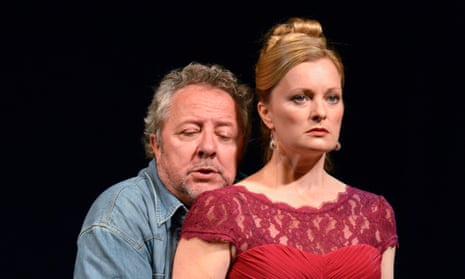In the world of opera, the question “who wears the trousers?” has suddenly become harder to answer. Looser gender divisions in casting, and a new understanding of the effect of changing hormones on the voice, mean that – for divas in particular – the future looks much brighter. Who is to say only a man should ever sing Puccini’s Nessun Dorma?
If a female singer’s vocal range dips with motherhood or age, she can simply switch to a lower voice, such as tenor. And, says Ash Khandekar, editor of the magazine Opera Now, switching categories across gender divides is becoming more acceptable.
Women with lower – mezzo-soprano or contralto – voices have always been cast in the cross-gender “breeches” roles of the popular opera repertoire, parts such as Cherubino in Mozart’s The Marriage of Figaro or Octavian in Richard Strauss’s Der Rosenkavalier. But now female singers in professional companies, as well as in amateur operatic societies and choirs, are taking advantage of the end of traditional boundaries to call for women to have the opportunity of lengthening their performing careers.
“It would be wonderful to see a relaxing of the rules,” said Lucy Crowe, a soubrette soprano (traditionally with a light, bright voice), this weekend, as she rehearsed for this month’s new English National Opera production of Figaro. “Certainly having children has made a huge difference to me vocally.” Although Crowe, 39, is unlikely ever to find her voice goes low enough for tenor parts, she is now graduating for the first time to roles such as the more powerful soprano Countess Rosina.
“My voice was always quite light, but having children has certainly changed it and made it stronger,” she said. “I find it incredibly exciting that I can now sing a wider range of repertoire. I still do Handel and Purcell, but I can sing more of the dramatic repertoire as well. I am loving the journey.”
The practice of switching roles across gender divides was first seen in church and amateur choirs, where there is frequently a dearth of male tenors. In the US, writer and amateur singer Roberta Hershenson “came out” several years ago as a woman who enjoys singing tenor roles: “There are at least 10 female tenors in the 200-member chorus I belong to, and most sing as well as the men,” she wrote in the New York Times. “Ballast is why some conductors -- although by no means all -- admit women into their tenor sections. It helps when the men don’t show up.”
Meanwhile, the Glyndebourne Academy in Sussex has just helped train the rapidly changing voice of a talented trans singer, Holden Madagame, a 27-year-old Native American. The academy, which seeks out voices that have had difficult routes to the stage, developed Madagame’s new vocal register, which moved from mezzo-soprano to the tenor range, as he moved away from his female birth designation.
“My voice has settled more and more with every month and year – and I know it’s simply that the voice needs time to stretch and acclimate itself to my new body and new vocal folds,” he said last autumn.So, just as Michelle Fairley is currently playing the treacherous Roman senator Cassius in Julius Caesar at London’s Bridge Theatre and Tamsin Greig won acclaim for playing the conventionally male comic role of Malvolio in Twelfth Night at the National Theatre last year, so female singers with dark notes to their voices are asking to be considered one day for lead roles such as Rodolfo in La Bohème, or Alfredo in La Traviata. Like Crowe, women singers are beginning to welcome alterations to their vocal range that can come with pregnancy, or as a natural part of the ageing process. Soprano Rhian Lois – who, as the maid Susanna, will join Crowe on stage to perform Sull’aria, the Figaro duet that features in the film The Shawshank Redemption – also experienced voice changes during and after her recent pregnancy.
“You really do need to let the change happen. Allow it. And it is great if that is more acceptable now,” said Lois, 31. “Every singer is different. When I was a teenager I actually sang quite low, but then I became a soprano, and since I had a baby last year my voice is actually both higher and stronger. It may even be partly a question of stamina.”
Opera voices are traditionally classified on the Fach system. A contralto’s vocal range is almost identical to that of a countertenor, while a woman who sings lower still might be called contralto profundo, equivalent to a male tenor, or even contralto basso, equivalent to a baritone, but all these distinctions are full of variation.
“It would be interesting to know how much vocal change is down to hormones or physical change, and how much is psychological,” said Crowe. “There is a greater confidence and loss of inhibitions that can come with becoming a mother, after all – and with ageing, too.”

Comments (…)
Sign in or create your Guardian account to join the discussion